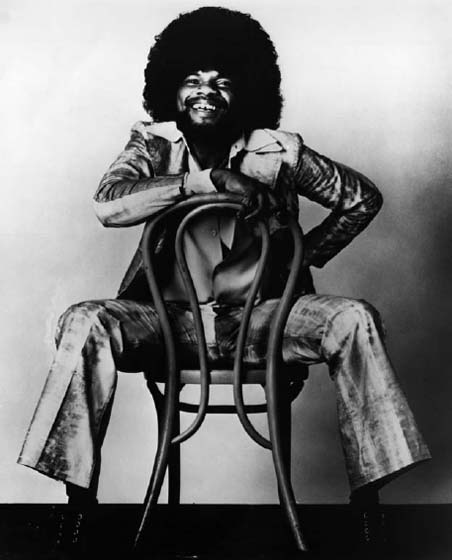The Encyclopedia of Dead Rock Stars (297 page)
Read The Encyclopedia of Dead Rock Stars Online
Authors: Jeremy Simmonds

In the early seventies Welnick had been a founding member of part-shock part-AOR rock band The Tubes (originally The Beans), with Bill Spooner (vocals/guitar), Fee Waybill (vocals), Roger Steen (guitar/vocals), Rick Anderson (bass) and Prairie Prince (drums). Despite one or two fine moments – most notably 1975’s ‘White Punks on Dope’ and ‘Don’t Touch Me There’ – the latter sometimes performed by Jane Dornacker, who herself died in remarkable circumstances ( October 1986)
October 1986)
– The Tubes at this stage barely registered the sales their onstage antics might have precipitated.
After the death of Mydland, and before that of leader Jerry Garcia
( August 1995),
August 1995),
Welnick had worked with the apparently rejuvenated Dead for five years, his licks featuring in live work but not on studio albums. Inevitably, Garcia’s passing saw The Dead disband, and when The Tubes reformed, it was to be without Welnick. Despite this, the keyboardist founded his own act, Missing Man Foundation, and continued to play with other acts until his death – not, though, with the reformed Dead on the surviving members’ reunion in 2002, a fact that left the vulnerable Welnick bereft and depressed.
The extent of this depression was to manifest itself four years on, when Vince Welnick was taken ‘horrifically injured’ from his home, the victim of an apparent suicide. The exact motive and method remained closely guarded secrets for some time before
The San Francisco Chronicle
revealed on their website that the keyboardist had stood before his wife on a hill behind their Forestville, California home and slit his own throat. It was believed that Welnick had undergone a change in the prescription medication he had taken since undergoing treatment for cancer and emphysema a decade before.
See also
Owsley Stanley ( Golden Oldies #130)
Golden Oldies #130)
Tuesday 6
Billy Preston
(Houston, Texas, 2 September 1946)

He was a child prodigy, for sure, but it seems unlikely that anyone who witnessed little William Preston playing the piano on his mother’s knee would’ve foreseen the remarkable success he was to enjoy in a career that was to embrace soul, R & B, gospel and rock ‘n’ roll. But perhaps when he was performing for gospel giants Mahalia Jackson and James Cleveland at the age of ten, folks started to suspect.
As one of the first R & B artists to work directly with rock musicians, Billy Preston certainly chose prestigious company. He met The Beatles as a teenager while he was playing with Little Richard’s band, the largely unknown group opening for the flamboyant star in 1962. It wasn’t until 1969 and The Fab Four’s end, though, that he became more of a fixture in the rehearsal studio. Frequently referred to as ‘the fifth Beatle’, Preston and his throbbing keyboard drove much of the
Abbey Road
and
Let It Be
albums. Indeed, John Lennon (and to some extent George Harrison) were keen to sign Preston up as a full-time member, but Paul McCartney kyboshed the idea, feeling – rightly, in the event – that the band was ready to split. As some kind of consolation, Preston became the only other musician credited on a Beatles single, when ‘Get Back’ became the final transatlantic number one for the band (in the UK, this made him the first artist to enter at the top with a debut hit). He was considered a good friend by the entire group, however, signing to the Apple label and working with both Harrison and Ringo Starr after the separation.
Preston already had a growing solo reputation by then. He’d previously issued a series of albums and was soon headhunted by Sly & The Family Stone as guest musician on
There’s a Riot Goin’
On (1971) and similarly for a good number of albums by The Rolling Stones (with whom he also toured). A remarkably versatile talent, Preston then secured a series of massive hits under his own steam, in particular the Grammy-winning ‘Outa-Space’ (1972), then ‘Will It Go Round in Circles?’ (1973) and ‘Nothing from Nothing’ (1974) – both of which topped Billboard’s Hot 100. (As a songwriter, Preston was also in demand; Joe Cocker scored a gold disc with his ‘You Are So Beautiful’ in 1975.)
‘I do believe that God has his hands on me and has work for me to do.’
Billy Preston

Billy Preston: It wouldn’t go ‘round in circles
After an international smash with Syreeta (‘With You I’m Born Again’, 1979), the hits all but dried up and Preston found himself in trouble with the law for drug offences, insurance fraud and later an assault charge. He managed to overcome his personal problems by the nineties and remained a popular live performer until ill health required a kidney transplant in 2002. Unreported at the time, Billy Preston went into a coma in November 2005, his death coming from malignant hypertension in hospital at his adopted home of Scottsdale, Arizona, on 6 June 2006. His final recorded contribution to the world was on the multiplatinum Red Hot Chili Peppers album,
Stadium Arcadium
(2006).
See also
John Lennon ( December 1980); George Harrison (
December 1980); George Harrison ( November 2001); Syreeta (
November 2001); Syreeta ( July 2004)
July 2004)
Monday 19
Duane Roland
(Jefferson, Indiana, 3 December 1952)
Molly Hatchet
(Various acts)

